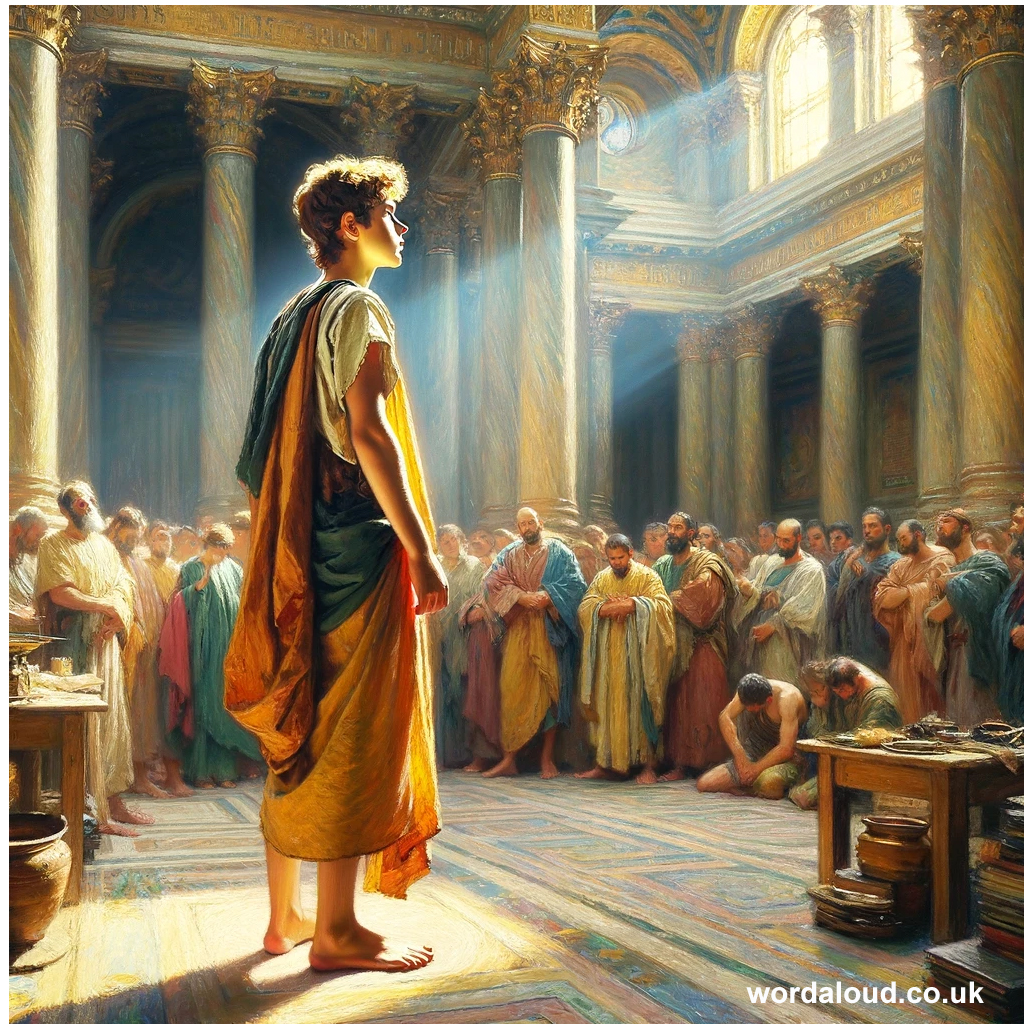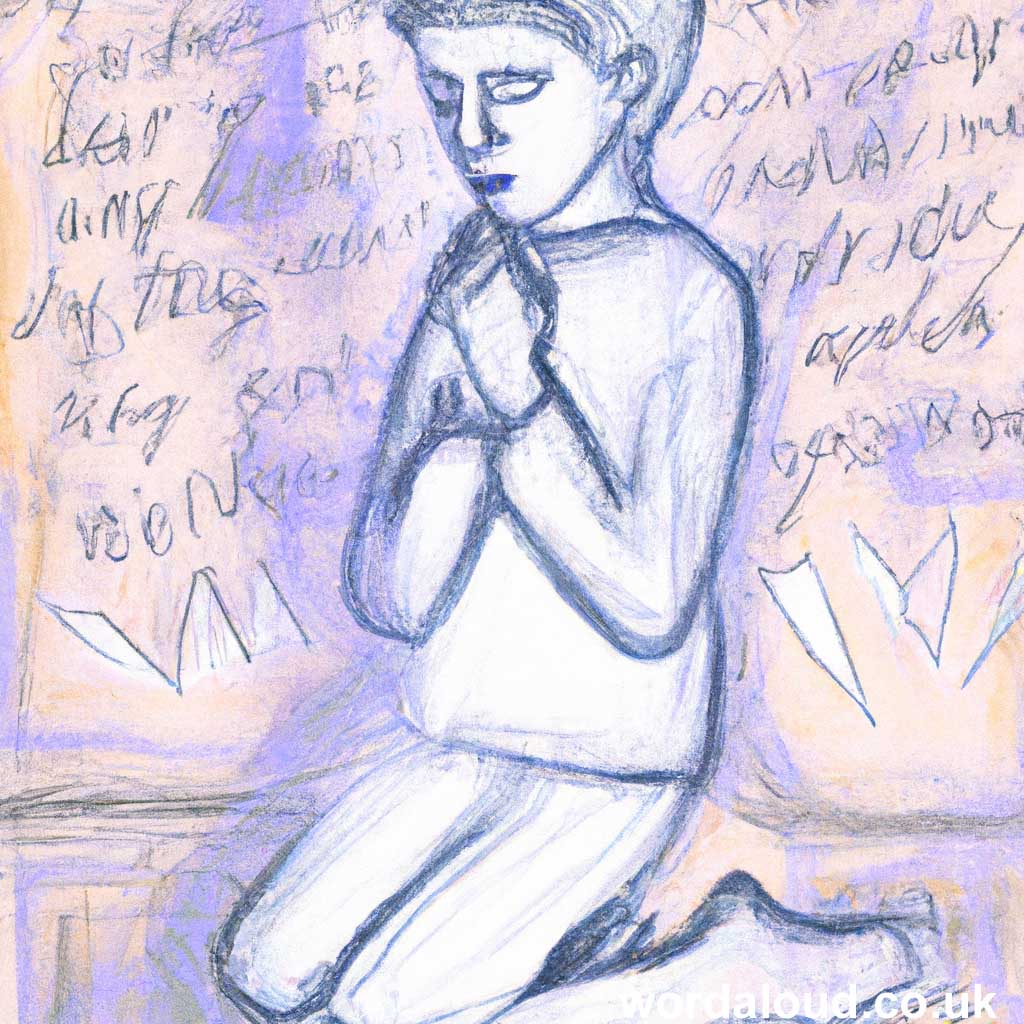Christian Art | Prayer With Jesus | Psalms | A Song Of Victory | King David As A Boy | Audio KJV | Love Revealed By Jesus Christ | King James Audio Bible
Psalm 118 | King James Audio Bible
YouTube | Psalm 118 KJV | King James Audio Bible
Psalm 118 is a composite hymn of thanksgiving, combining elements of individual and communal praise. The psalm’s rich thematic tapestry encompasses deliverance, trust, prophetic fulfilment and joy. The psalm’s enduring message is its affirmation of God’s unfailing mercy and faithfulness – of hope and comfort across generations.
Historical And Liturgical Context
Psalm 118 is traditionally recited during Jewish feasts, particularly Passover, signifying its importance in the Jewish liturgical calendar. For Christians, the psalm’s association with Palm Sunday, as it is believed to have been sung during Jesus’ triumphant entry into Jerusalem, adds significance. This dual liturgical relevance underscores the psalm’s themes of deliverance and salvation.
Opening And Closing With Thanksgiving
The psalm begins and ends with an identical verse, forming an inclusio that frames the entire composition: ‘O give thanks unto the LORD; for he is good: because his mercy endureth for ever.’ This refrain, repeated by different groups – Israel, the house of Aaron, and those who fear the Lord – emphasizes the communal aspect of worship and acknowledgment of God’s enduring mercy.
The Psalmist’s Personal Distress And Deliverance
The psalmist narrates a personal experience of distress and divine intervention: ‘I called upon the LORD in distress: the LORD answered me, and set me in a large place.’ This verse highlights the individual aspect of the psalm, contrasting personal despair with God’s deliverance. It reflects a deep sense of gratitude and relief, acknowledging God’s responsiveness to human supplication.
Expression Of Trust In God
A key theme of Psalm 118 is expression of trust in God over humans. The psalmist declares, ‘It is better to trust in the LORD than to put confidence in man.’ This sentiment, emphasizing reliance on divine rather than human strength, recurs, further reinforcing notion of God as a protector and saviour.
Celebration Of Victory
The psalm transitions from recounting past distress to celebrating victory. ‘The LORD is on my side; I will not fear: what can man do unto me?’ and ‘The LORD taketh my part with them that help me: therefore shall I see my desire upon them that hate me.’ These verses convey a confidence born of faith, celebrating God’s presence as a source of strength and victory over adversaries.
The Stone The Builders Rejected
Verse 22, ‘The stone which the builders refused is become the head stone of the corner,’ is particularly significant. This metaphorical statement has been widely interpreted in both Jewish and Christian contexts as a reference to messianic prophecy. In Christianity, it is directly associated with Jesus Christ, symbolizing Jesus’ initial rejection and subsequent exaltation.
A Call To Rejoice And Give Thanks
The psalm contains a universal call to rejoice: ‘This is the day which the LORD hath made; we will rejoice and be glad in it.’ This verse, often cited in worship, reflects a joyous acceptance of God’s providence and a celebration of the present as God’s gift.
Prayer For Salvation And Prosperity
The plea, ‘Save now, I beseech thee, O LORD: O LORD, I beseech thee, send now prosperity,’ reflects a desire for God’s continued favour. This request for salvation and prosperity has both a personal and communal dimension, reflecting collective hopes and prayers of the faithful.
Blessing And Recognition Of God’s Sovereignty
The latter part of the psalm includes blessings for those coming in the name of the Lord and recognition of God as the source of light and truth. ‘Blessed be he that cometh in the name of the LORD: we have blessed you out of the house of the LORD.’ This verse reinforces the theme of divine sovereignty and the importance of seeking God’s blessing.

![]()
Psalm 118 | King James Audio Bible
O give thanks unto the LORD; for he is good: because his mercy endureth for ever.
Let Israel now say, that his mercy endureth for ever.
Let the house of Aaron now say, that his mercy endureth for ever.
Let them now that fear the LORD say, that his mercy endureth for ever.
I called upon the LORD in distress: the LORD answered me, and set me in a large place.
The LORD is on my side; I will not fear: what can man do unto me?
The LORD taketh my part with them that help me: therefore shall I see my desire upon them that hate me.
It is better to trust in the LORD than to put confidence in man.
It is better to trust in the LORD than to put confidence in princes.
All nations compassed me about: but in the name of the LORD will I destroy them.
They compassed me about; yea, they compassed me about: but in the name of the LORD I will destroy them.
They compassed me about like bees; they are quenched as the fire of thorns: for in the name of the LORD I will destroy them.
Thou hast thrust sore at me that I might fall: but the LORD helped me.
The LORD is my strength and song, and is become my salvation.
The voice of rejoicing and salvation is in the tabernacles of the righteous: the right hand of the LORD doeth valiantly.
The right hand of the LORD is exalted: the right hand of the LORD doeth valiantly.
I shall not die, but live, and declare the works of the LORD.
The LORD hath chastened me sore: but he hath not given me over unto death.
Open to me the gates of righteousness: I will go into them, and I will praise the LORD:
This gate of the LORD, into which the righteous shall enter.
I will praise thee: for thou hast heard me, and art become my salvation.
The stone which the builders refused is become the head stone of the corner.
This is the LORD’S doing; it is marvellous in our eyes.
This is the day which the LORD hath made; we will rejoice and be glad in it.
Save now, I beseech thee, O LORD: O LORD, I beseech thee, send now prosperity.
Blessed be he that cometh in the name of the LORD: we have blessed you out of the house of the LORD.
God is the LORD, which hath shewed us light: bind the sacrifice with cords, even unto the horns of the altar.
Thou art my God, and I will praise thee: thou art my God, I will exalt thee.
O give thanks unto the LORD; for he is good: for his mercy endureth for ever.

![]()
Psalm 118 | King James Audio Bible
- Thanksgiving To God: The psalm emphasizes giving thanks to the Lord for His enduring mercy and goodness.
- Divine Mercy And Faithfulness: The psalm highlights the consistent and enduring nature of God’s mercy.
- Personal Deliverance: The psalmist recounts personal experiences of distress and celebrates deliverance by God.
- Trust In God Over Humans: The psalm advocates for placing trust in God rather than in humans or princes, emphasizing God’s reliability.
- Victory Over Adversity: The psalm celebrates triumph over enemies and obstacles, attributing victory to God’s intervention.
- Messianic Prophecy: The verse about the stone the builders rejected is often interpreted as a messianic prophecy, especially significant in Christian theology.
- Universal Call To Joy And Rejoicing: ‘This is the day the Lord has made’ invites believers to rejoice and be glad, recognizing each day as a gift from God.
- Prayer for Salvation And Prosperity: The psalm includes a plea for salvation and blessings, reflecting a communal desire for God’s favor.
- God’s Sovereignty and Blessing: The psalm acknowledges God as the sovereign lord and source of blessing, particularly in the context of worship and temple.
- Communal And Liturgical Aspect: The psalm’s structure and repetition suggest its use in communal worship and liturgical settings.

![]()








